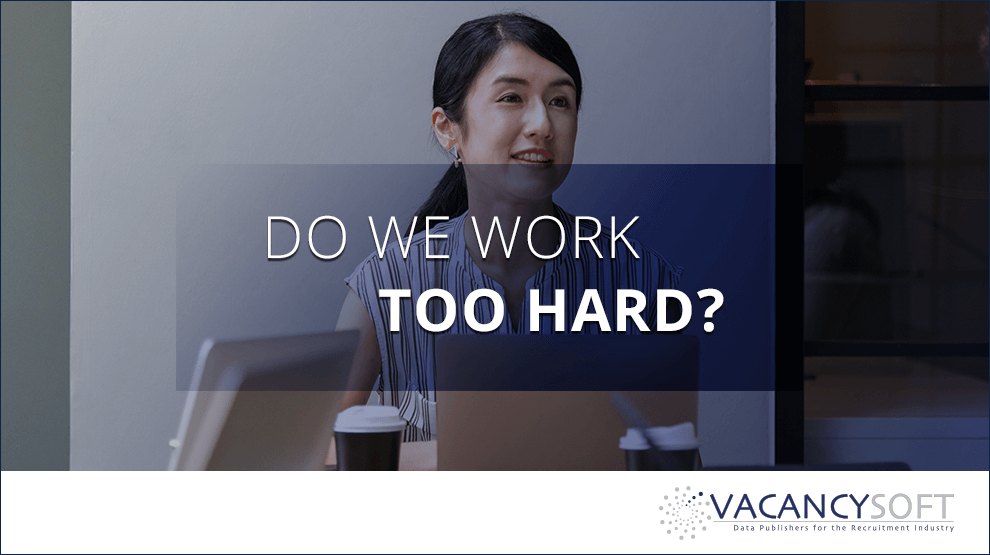
Recruitment is a notoriously tough industry where fine margins can be the difference between success and failure. Those who succeed, realistically can earn significant amounts, where there is significant pressure to hit input KPIs for those who don’t immediate hit targets. As a result, for some recruiters, their day starts by 8am and they won’t leave the office before 7pm. However the first thing to consider is, if you are consistently doing this, you are actually working over the maximum amount stipulated by the ‘working time directive.’ Whilst anyone can opt out for the working time directive, if you do find yourself consistently working over 50 hours a week, there are some other issues which can emerge.
- Working too long hours can damage your health. Either through not having the time to organise to eat properly, or through not exercising or sleeping enough. All these are core components of a healthy lifestyle which if you neglect it, will end up impacting your performance negatively.
- Many people argue that if you are working a 50 hr+ week, you are not necessarily being efficient. Think about the pareto principle. What is it you are doing that gets results? If you are doing something for the sake of it, what would happen if you stopped doing it? Be brutal, and work through how you spend your time and also analyse if you really need to spend so much time on some tasks. Create a time sheet and document a working week in full, by 30 minute blocks, with that see what emerges.
- If you are in a senior role, perhaps you can delegate more? Giving mid tier people more responsibilities will mean they are better placed to help you across the board. Quite often the reason senior managers work the longest hours is because they end up trying to do everything. The danger with this of course is you end up not delivering to the standards required.
Other tricks you can do to cut down your working hours through optimising your efficiency include:
- Put your email on a timer. The way the brain works is such that we are designed so at the point we concentrate on a task, if we are then disrupted, it can take up to 10 minutes to regain the train of thought necessary to complete the exercise. The number one disruption people in work face is e-mails which they then feel they have to reply to. Try putting your email on a 30 minute timer and see what happens.
- If you can negotiate it, try get a longer lunch break and use that time to go to the gym. Just the process of exercising mid day will freshen you up and make you sharper and productive in the afternoon. Avoid heavy meals at lunch time for the same reason.
- If you have a culture where people constantly are trying to organise after work drinks, factor that even if you don’t realise it, when you attend these, you are actually still working. The conversation will typically be about work / people you work with, where mentally you have to stay on, meaning you aren’t actually relaxing. Maybe once a week joining in for Friday drinks can be good to end the working week, but otherwise, give yourself the time during the week to disengage and recharge at the end of each working day.
Vacancy Analytics can help you map out client activity, spotlight areas of growth and highlight trends you should be aware of. For a consultation on how we can help, please contact us.


